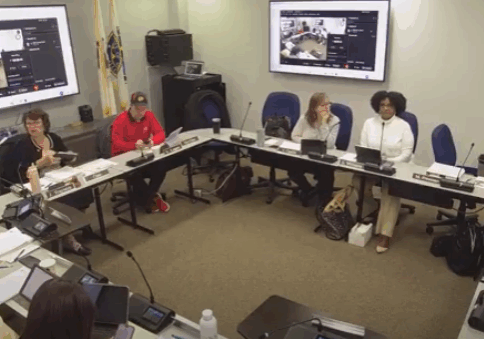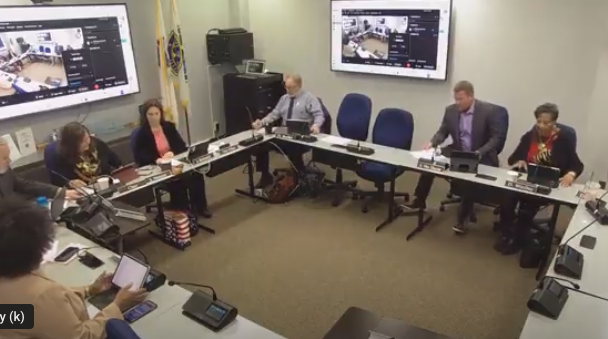JOLIET — The Will County Ordinance Committee spent several hours Thursday reviewing and updating Chapter 30 of the county’s Code of Ordinances, which governs county administration, with particular attention to clarifying the powers of the county board speaker and committee chairs.
During the detailed page-by-page review, the committee discovered provisions in the ordinances dating back to 1943 that had not been properly updated over the years, resulting in inconsistencies between the county board’s rules and the official code.
“This is really an opportunity to learn more about what our job consists of,” said committee member Katie Freeman. “It’s a lot. We have a lot more to know about than we knew we knew.”
One key discussion centered on conflicting provisions regarding who can chair committee meetings when both the chair and vice chair are absent. The committee identified language that suggested the county board speaker/chair could automatically serve as chair in such situations, while other sections indicated committee members should elect a temporary chair.
“For a long time we were told that the speaker chair could not fill that role, could not sit and make a quorum,” said committee member Judy Ogala. “We were surprised when we went through the ordinance.”
Phil Mock of the State’s Attorney’s Office, who has been leading the ordinance review, explained that the speaker/chair is actually an “ex officio member of all committees” with voting privileges, according to the ordinance.
“By the fact of being county board speaker chair, [they are] automatically a member of all committees,” Mock said, adding that as a member, they have voting rights at any committee meeting they attend.
This revelation surprised several long-standing committee members who said this provision had not been used in recent years. Chief of Staff Chuck Pelky noted that “prior to Mimi Cowen’s tenure” as board leader, the rules and ordinances had matched up, allowing the speaker to serve on committees.
The committee also addressed virtual meeting attendance rules, discussing how they align with state law. Mock clarified that while the county board must vote to allow virtual attendance, they cannot deny it for members who cite specific statutory reasons such as personal illness, disability, employment purposes, family emergencies, or unexpected childcare needs.
“If it follows the reason… they could vote you not to [attend virtually]. They’re violating the Open Meetings Act,” Mock said. “The attorney general could come in and do sanctions against them.”
Other updates to the administrative code included removing outdated references to previous ordinances, making formatting consistent, improving readability through proper indentation, and ensuring correct capitalization of official titles.
The committee also addressed several procedural matters, including clarifying the process for committee assignments, specifying how honorary proclamations are approved, and confirming that the Prairie View Landfill auditor’s report should be reviewed annually by the executive committee — a requirement that committee members noted had not been followed in recent years.
Committee Chair Jackie Traynere summarized the importance of the work: “We’re going through this and I think it is a good idea… to find out when the auditor does that report and then maybe have it on the finance committee or the next month or two months afterwards.”
The committee voted unanimously to forward Chapter 30 revisions to the executive committee with the changes discussed during the meeting. The committee will continue its systematic review of the county’s ordinances at its next meeting, when it plans to begin examining Chapter 34.


